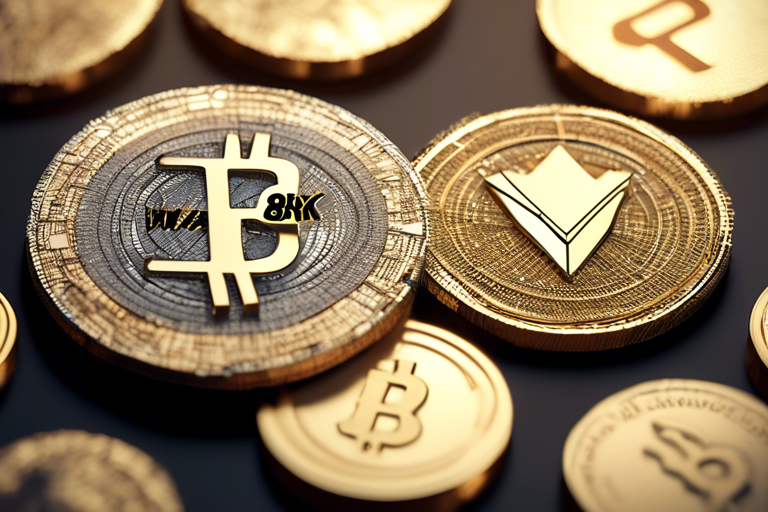What Does Bhutan’s Recent Bitcoin Move Mean for the Crypto Market?
Key Takeaways:
- Bhutan deposited 929 BTC, valued at approximately $66.16 million, into Binance.
- Bhutan has been mining Bitcoin since 2017, utilizing its vast hydroelectric resources.
- The country is now one of the top holders of Bitcoin among nations.
- The motives behind the transfer may indicate a potential sell-off in the context of Bitcoin’s recent price surge.
Alright, let’s dive into this fascinating situation surrounding Bhutan and its Bitcoin dealings. You see, in the world of crypto, every move can spark waves of speculation and analysis. Just recently, the Royal Government of Bhutan deposited a whopping 929 BTC to the crypto exchange Binance. That’s about 66.16 million dollars—yes, you heard that right! And this transfer came just after the price of Bitcoin crossed $70,000 for the first time since June.
So, what could this all mean for the crypto market? Well, let me break it down for you.
The Context of the Transfer
First, we need to understand the timing of this transfer. Bitcoin had just surged by over 5%, climbing above $71,700 in record time. That’s a significant jump, and it might sound a bit alarming to think of a government offloading such a large amount of BTC during an upward trend. Typically, sudden deposits to crypto exchanges could signal an intention to sell. If Bhutan decides to sell, it could impact the market dynamics positively or negatively, depending on how much traders are willing to buy and how that affects overall market sentiment.
Now, what’s more interesting here is that this is Bhutan’s first transfer of Bitcoin to an exchange since they sent 381 BTC to Kraken back in July. It seems they’re slowly making waves in the crypto pool. There’s a bit of intrigue, too—what’s Bhutan’s plan? The motives behind such big transactions aren’t entirely clear and can certainly stir up emotional responses among investors who are trying to read between the lines.
Bhutan’s Rise in the Crypto Space
Bhutan isn’t just an accidental player in the crypto game; they’ve been actively mining Bitcoin since 2017. Imagine that—a small, landlocked country in the Himalayas becoming one of the top Bitcoin holders globally! They’ve been using their abundant hydroelectric resources to power a sustainable mining operation. And when you consider that Bhutan is now the fifth-largest state holder of Bitcoin after the U.S., China, the UK, and Ukraine, it really puts things into perspective.
This shift toward Bitcoin mining came at a crucial time, especially as the pandemic hit tourism—the country’s main revenue source—hard. The revenue they generated from Bitcoin mining even financed a 50% salary increase for public servants! It’s a compelling story of resilience and innovation. Who would have thought a small country can turn to Bitcoin to boost its economy?
Practical Tips for Investors
So, what should you, the potential investor, take from all this? Here are some practical tips:
-
Stay Informed: Keep an eye on major transactions in the crypto space, especially from nation-states. They can signal shifts in supply and demand and can impact your strategy.
-
Analyze Market Sentiments: If Bhutan starts selling off its BTC, watch how that impacts the market. A drop in prices might present a buying opportunity for you, if you believe in BTC’s long-term value.
-
Diversify Investments: Given the volatility often associated with cryptocurrencies, consider diversifying your portfolio. BTC is one asset among many.
- Take Note of Local Factors: Governments may leverage cryptocurrency for various reasons—economic, political, or social. Understanding these factors could give you insight into potential market movements.
My Personal Insight
In my view, Bhutan’s moves represent a blend of opportunity and caution for investors. The fact that a government is strategically investing in Bitcoin—and actively mining it—can be seen as a significant endorsement of cryptocurrency’s future. But remember, what goes up can come down. An intricate dance of market forces is always at play.
So, while it’s exciting to watch entities like Bhutan make headlines in the crypto scene, it’s crucial to approach such news with a well-rounded perspective. What does this mean for the power dynamics in the crypto market? If a small nation can rise to such prominence, imagine what could happen next with larger countries and emerging economies!
Conclusion
As we reflect on Bhutan’s recent crypto moves, it really does raise thought-provoking questions about the role of nation-states in the evolving narrative of cryptocurrency. Should we expect more countries to follow suit, or are we witnessing a unique case? How will this play out in the grand scheme of things for global adoption of crypto?
The bottom line is that the crypto landscape is changing rapidly, and every development—like Bhutan’s bold moves—shapes the market just a little bit more. What do you think? Are we on the brink of seeing more countries dive into crypto mining, or is this just a flash in the pan?





 By
By
 By
By
 By
By
 By
By

 By
By